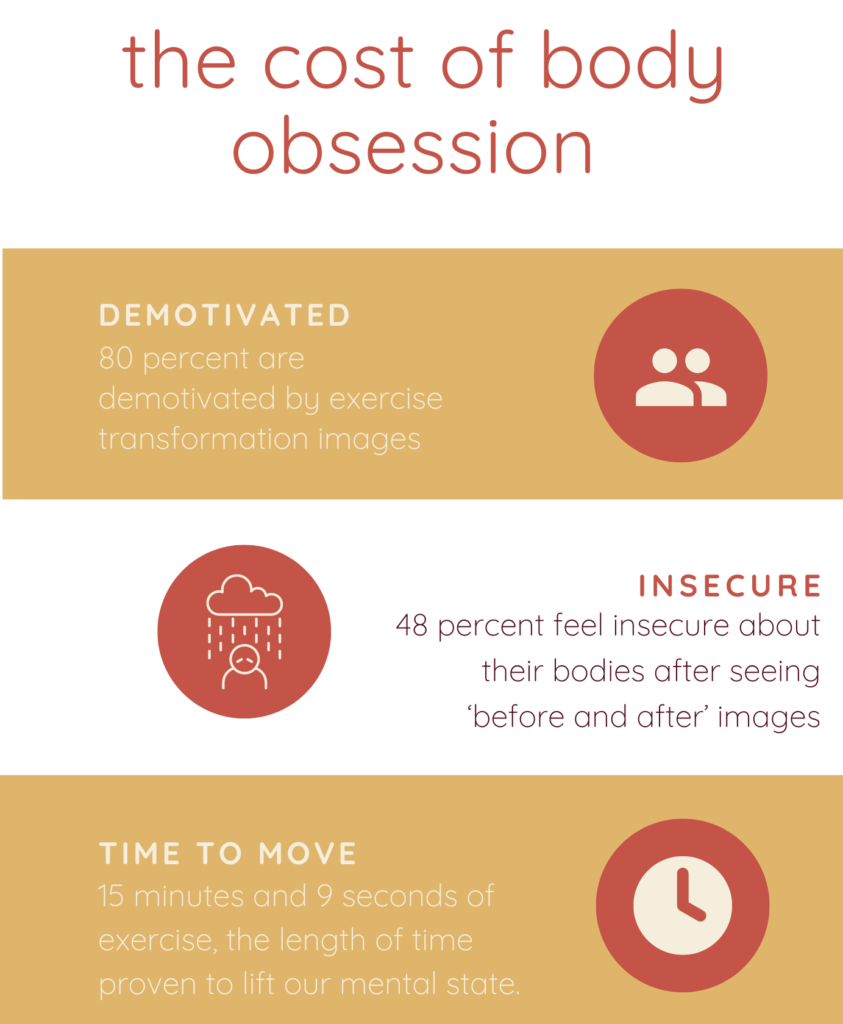New campaign calls out our obsession with the perfect body
Have you ever looked at a before and after photo and felt inspired? Or did you feel something a little less positive? Social media is full of misleading images of people who have ‘transformed’ their bodies, but is this something we should aspire to as the most important goal of exercise and movement?
ASICS says no, its trying to tackle that with a new campaign aimed at calling out our obsession.
A recent study by ASICS found that nearly three-quarters of people believe that society’s obsession with the perfect body is damaging our mental health. 80 percent are demotivated by exercise transformation images and nearly half (48 percent) feel insecure about their bodies after seeing ‘before and after’ images.

Regular physical activity is proven to improve mental health. It uplifts mood, improves sleep, helps manage stress and can also reduce the risk of depression. However, the culture of exercise transformation pictures is putting people off exercising with over 80 percent of people claiming to be demotivated to exercise after seeing these images.
New research conducted by ASICS reveals the damaging impact of exercise-transformation pictures on mental health.
The research is unveiled as part of a new ASICS campaign, launching on World Mental Health Day, that looks to challenge society’s focus on exercising for aesthetic transformations. Supported by A&E Doctor and TV Personality Dr Alex George, Creator and Philanthropist Jada Sezer, as well as TV Host and Professional Dancer Motsi Mabuse, ASICS is disrupting the before and after exercise picture format to highlight the transformative power of exercise on the mind.

A series of images shot by photographer Sophie Harris-Taylor show each celebrity before and after 15 minutes and 9 seconds of exercise, the length of time proven to lift our mental state. There is, of course, no dramatic physical change between the two images, highlighting that not all exercise transformations are visible. These pictures aim to challenge people’s perceptions of dramatic exercise transformations and encourage exercise for the mental health benefits, not purely the aesthetic.
Speaking about his experience with exercise, Dr Alex George said: “I have been on a real journey with exercise and the reasons why I do it. When I was younger, I really used exercise as a weapon, to try and look thin, to look a certain way. When I went on Love Island a few years later, I was over training, and it wasn’t good for my mental health. Now, I’ve changed the way I view exercise and it’s really helped my mental health. I move for my mind, rather than to look a certain way.”
Jada Sezer commented: “It’s great that ASICS is challenging the use of body-transformation pictures because for me it’s never been about a physical transformation, more of a mental transformation. If I feel good mentally, then I’ve achieved my goal. No pain, no gain, has never resonated with me, it’s always been about how it makes me feel, not look. And I’m proud to be part of a campaign that represents this.”
Gary Raucher, EVP, ASICS EMEA said: “The culture of ‘body transformation’ images, driven largely through social media, has conditioned society to view exercise through the lens of physical change. At ASICS, we believe the true benefit of sport and movement goes beyond the body to also uplift the mind. That’s why we’re called ASICS – Anima Sana in Corpore Sano, or a Sound Mind in a Sound Body.
Committing to this cause, ASICS EMEA will not post exercise transformation pictures that focus purely on aesthetic transformation on its channels. This also has the support of our 500 plus ASICS FrontRunner community with an audience of millions. The community is committed to only sharing images that reflect the uplifting feeling movement brings: the powerful mental and emotional impact of exercise on the whole self – body and mind.”

The research by ASICS found that 82% of women agree that society’s obsession with the perfect body is bad for people’s mental health and an additional 64% of women agree that body transformation images should be banned from social media.
Hayley Jarvis, Head of Physical Activity at Mind, said: “Mind is a firm believer in the power of movement, however small, to support better mental health. Our aim is to support more people to get active to help them to thrive. Our own research shows that many people are put off exercising because they feel self-conscious. The more we can do to remove the barriers to people enjoying the benefits of exercise, the better.”
